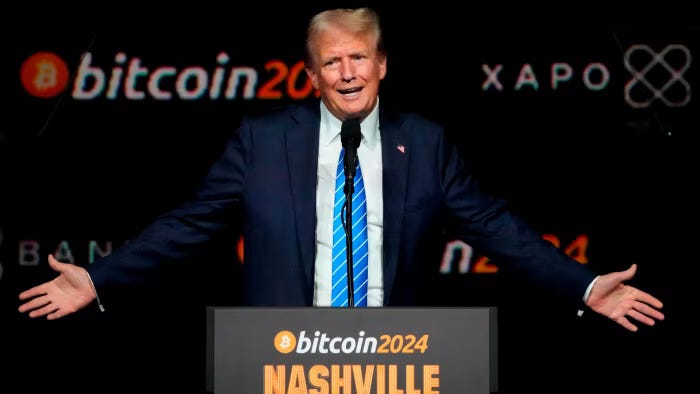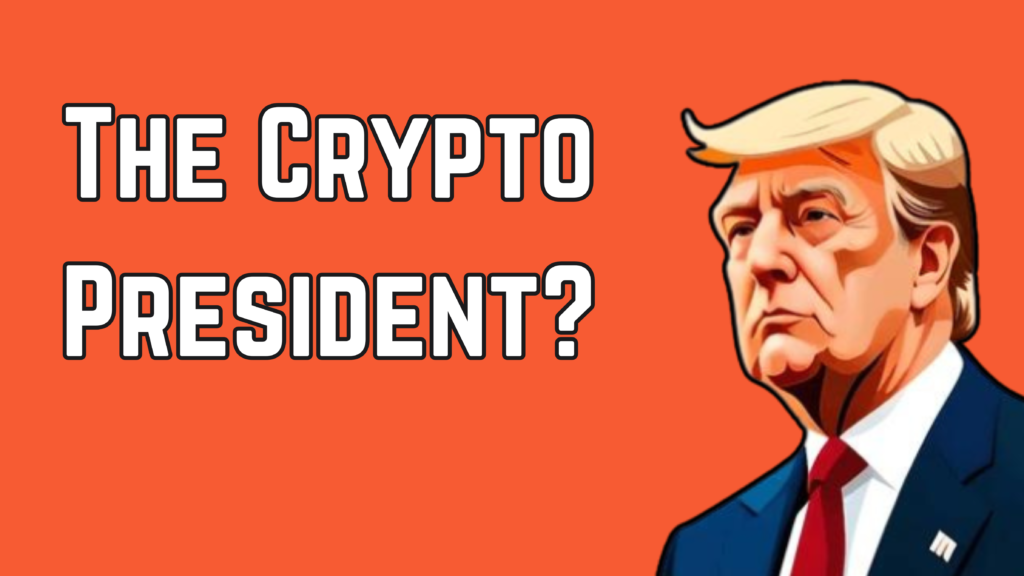Legality of crypto in different countries
The adoption and legality of crypto in different countries has evolved significantly over the years. Since Bitcoin’s launch in 2009, its status has varied, influenced by how governments perceive the impact of digital assets on their economies and financial systems.
In the beginning, crypto existed in a legal grey zone. Early adopters saw the potential of digital currencies, especially for bypassing traditional banking. However, most governments had no clear laws on its use. As the market grew, especially in the late 2010s, regulators began paying closer attention.
Some governments saw the rise of crypto as a financial threat, while others viewed it as an opportunity for innovation. Clear regulations were introduced in certain areas, providing legal frameworks for exchanges, taxation, and security. Meanwhile, others took a restrictive approach, imposing heavy regulations or outright bans to prevent potential misuse.
An important shift came when governments started classifying cryptocurrencies. Some were categorized as commodities, others as securities, or utility tokens. These classifications shaped how they were taxed, traded, and used within different markets.
As the crypto market matured, regulators worked to balance innovation with financial oversight. Despite varied approaches, crypto’s potential continues to push governments to adapt. The legal landscape remains in flux, with ongoing changes aimed at ensuring both security and growth.


Src: wikipedia
Some Specific Countries
United States: In the U.S., cryptocurrency is legal but is subject to complex regulations. The SEC treats many tokens as securities, while the CFTC classifies Bitcoin and Ethereum as commodities. Exchanges must comply with anti-money laundering (AML) and know-your-customer (KYC) regulations. Though there is no comprehensive federal crypto law, states like Wyoming have passed crypto-friendly regulations.
European Union: Crypto regulations within the EU differ from country to country. While cryptocurrencies are legal, the EU has introduced the Markets in Crypto-Assets Regulation (MiCA) to harmonize crypto oversight across member states. MiCA aims to protect consumers, prevent money laundering, and bring a unified regulatory framework by 2024.
China: China has taken a strict stance, banning all cryptocurrency transactions and mining activities in 2021. Despite the country’s crackdown, its interest in blockchain technology remains strong, and China has launched its own Digital Yuan. Funnily enough, after the US, China still remains the largest miner of Bitcoin.
Japan: Japan is one of the most progressive nations regarding crypto. Bitcoin is legally recognized as a form of payment, and exchanges must be registered with the Financial Services Agency (FSA). Strict consumer protection laws have made the country a leading crypto hub in Asia.
El Salvador: El Salvador made global headlines in 2021 by becoming the first country to adopt Bitcoin as legal tender. Citizens can use Bitcoin for everyday transactions, and the government has promoted the establishment of a “Bitcoin City” for innovation and tourism.
Crypto users in different countries
The number of cryptocurrency users worldwide has seen significant growth over the past few years, with estimates suggesting over 420 million users by 2024. This surge in crypto adoption is largely driven by diverse needs across different regions, from investment to remittances and financial freedom.
In regions where access to traditional banking is limited, cryptocurrencies are often used as an alternative financial system. In certain areas, users rely on crypto to receive remittances, avoiding the high fees imposed by conventional money transfer services. The decentralized nature of digital assets also appeals to those in countries with unstable currencies, where crypto offers a way to preserve wealth amidst inflation or economic instability.
Some nations have embraced cryptocurrency as a means to stimulate innovation and attract foreign investments. In contrast, other regions have seen a rise in crypto usage for cross-border transactions and online trading due to regulatory leniency.
Investment remains one of the key reasons for crypto adoption in more developed economies. Here, users often see crypto as a high-risk, high-reward asset class, with Bitcoin and Ethereum being popular choices for portfolios.
As crypto becomes increasingly integrated into various aspects of finance, its user base continues to grow globally, adapting to the unique needs of each region. This rise in users is shaping the future of digital finance, making crypto more than just a speculative asset but a viable tool for global economic participation.

Src: Zipia
Some of the surprising countries in the list include China and Pakistan for sure, with crypto completely banned in China and no clear laws or regulations in Pakistan either. Countries like Nigeria with strict governments also rank high on the list mainly because of the economic status of these countries.
Latest developments in crypto
QATAR
Let’s start with the latest news first, just yesterday QFC, the Qatar Financial Centre introduced a regulatory framework for all digital assets. The main goal of this framework is to align with Qatar’s Third Financial Sector strategy and to attract both domestic and international players, bolstering the country’s financial services. Companies can now apply for licenses to perform token service provider activities under this new regime.
This has become a very common norm now, after the UAE – rich middle eastern countries have become much more adoptive towards new technology, especially crypto in the last couple of years.
I really am impressed by how these countries are becoming the hub of everything tech now. I mean with all due respect to the US and Silicon Valley and such, there’s way too stringent laws for crypto to thrive in the US (as of now) and middle east is a great place where the community is thriving as we speak.
DUBAI (UAE)
Speaking of the middle east, I don’t think there’s a country on this planet which is more of a centre for cryptocurrency right now than Dubai. Let me give you some legal and tech perspective first.
1. Proactive Regulatory Environment:
- Dubai was one of the first jurisdictions to recognize the potential of blockchain technology and cryptocurrencies. The establishment of the Dubai Blockchain Strategy in 2016 aimed to position Dubai as a leader in blockchain innovation by 2020. This initiative focused on government adoption of blockchain technology, leading to the city embracing decentralized systems for various public services.
- The Dubai Virtual Asset Regulatory Authority (VARA) was launched to create a legal framework that provides clear guidelines and protections for digital assets. This regulatory clarity has been a key factor in attracting crypto businesses and investors.
2. Free Zones and Business Incentives:
- Dubai’s free zones, such as the Dubai Multi Commodities Centre (DMCC) and Dubai International Financial Centre (DIFC), offer attractive incentives like 100% foreign ownership, zero taxes, and simplified business setup processes. These zones have been particularly welcoming to crypto companies, allowing them to operate with minimal regulatory friction.
- The DMCC launched its own Crypto Centre, a dedicated ecosystem for crypto and blockchain businesses, providing access to infrastructure, networking, and growth opportunities.
3. Government Support and Vision:
- The Dubai government’s forward-thinking approach has been instrumental in establishing the city as a crypto hub. Leaders in Dubai have consistently shown support for digital assets and blockchain, viewing them as key to the city’s economic diversification strategy. This vision is aligned with the UAE’s broader digital economy initiative, which seeks to integrate cutting-edge technologies into the national economy.
- Dubai also set up the Global Blockchain Council to explore blockchain’s applications and its potential to transform various sectors.
4. Global Attractiveness and Infrastructure:
- Dubai’s strategic location, world-class infrastructure, and reputation as a global business hub make it an attractive destination for crypto companies and investors. The city’s connectivity and openness to international trade have further enhanced its appeal as a base for blockchain and crypto enterprises.
- Events such as the Future Blockchain Summit and World Blockchain Summit have also played a role in putting Dubai on the global crypto map by bringing together industry leaders, investors, and innovators to discuss the future of digital assets.
5. Banking and Financial Services Integration:
- Dubai has worked to integrate crypto into its financial services sector, with several banks and financial institutions beginning to offer services related to digital assets. The presence of financial institutions that are open to crypto transactions has further cemented Dubai’s status as a crypto-friendly city.

Dubai was probably the first country to open its arms to crypto and I think from a POV – it is reaping in the benefits. The largest of crypto companies have set up in Dubai even when the founders do not belong to the UAE and Dubai also acts as the centre for the biggest crypto meetups and conferences throughout the year.
I think Dubai has been a great example of how to actually grow as a country (I know I know UAE is the country, but you get it) not just in crypto but generally as well and that has attracted a lot of international business.
Oh yes, by the way, in a landmark ruling, Dubai’s Court of First Instance has officially recognized cryptocurrency as a valid form of salary payment, marking a significant shift in the UAE’s financial landscape. Make of it what you will. 🤷
ARGENTINA
On 24th August, we covered a report saying that Argentina had introduced blockchain, Ethereum and Solidity into their high school curriculum and this is just one of the steps that are being taken in Argentina for the promotion of crypto under the eccentric president Javier Milei.

- Milei has publicly praised Bitcoin and other cryptocurrencies as tools for promoting economic freedom. He views Bitcoin as a decentralized form of currency that can protect individuals from inflationary pressures and government interference, issues that have plagued Argentina for years.
- He has argued that cryptocurrencies represent a way for people to safeguard their wealth from the Argentine peso’s chronic inflation and the government’s mismanagement of the economy.
From the research I’ve done over the past couple of days – I find that the Argentina govt has taken a dual approach towards crypto so far – increasing regulation to mitigate risk while also promoting the potential for digital assets under the crypto friendly governance.
A recent episode of Bankless covers Argentina’s crypto state in depth but I’m yet to go through it fully – Bankless: How crypto is transforming Argentina’s economy.
Russia
I’ll give you the exact version of what I wrote on 1st August 2024 on our website while writing the news of mining being legalized in Russia from 1st November :
~~~~~~~~~~~~~~~~~~~~~~~~~
Russia’s State Duma has passed two major crypto-related laws. The first law, starting on November 1, 2024, legalizes cryptocurrency mining in Russia. It allows only registered legal entities and individual entrepreneurs with the Ministry of Digital Development to engage in mining. Unregistered individuals can operate mining rigs, but only within specific energy consumption limits. Oversight will involve various institutions, with the Bank of Russia holding significant regulatory power.
- The cabinet of ministers will set the requirements for mining infrastructure operators. The Russian government, in coordination with the Bank of Russia, will establish additional requirements, including those for mining pool participants.
- Miners must report the digital currencies obtained through mining to a designated government body. The Bank of Russia and the authorized body can impose bans or restrictions on digital currency transactions to ensure monetary stability.
- The law also bans advertising cryptocurrencies and offering them to the public.
The second law, effective September 1, 2024, creates a special experimental regime. This regime allows the Bank of Russia to authorize companies to conduct cross-border settlements and exchange trading in digital currencies. Companies, exchanges, and crypto entities must apply to the central bank to participate. Anti Danilevski, CEO of Kick Ecosystem, explained that the Bank of Russia will carry out experiments related to using cryptocurrency for foreign trade, exchange trading, and creating an electronic platform for crypto operations based on the National Payment System (NPS).
~~~~~~~~~~~~~~~~~~~~~~~~~~~
When it comes to Russia, what’s difficult is to predict them – lately they’ve been like China when it comes to policies; establishing and removing them at will. So, I’d rather not say much about them here.
I’ll, just like you, wait and watch how this pans out. Of course, it would be of great significance if probably one of the largest countries in the world adopts crypto but it just remains to be seen.
USA
The home of Baseball, Handegg and revolution. The United States Of America. The single most influential country when it comes to world economics (still/yet).
THE ETFs
This year, the US took a significant step in crypto adoption by launching Bitcoin and Ethereum ETFs, and let me tell you, it’s been quite the spectacle. Finally, we’ve got some Wall Street suits mingling with crypto enthusiasts—imagine Bitcoin traders in hoodies shaking hands with Wall Street brokers. What a time to be alive!
Now, ETFs (Exchange-Traded Funds, for the uninitiated) are basically a way for regular folks to invest in Bitcoin and Ethereum without having to dive into the complexities of wallets, private keys, and all the other crypto lingo that usually makes people’s eyes glaze over. Think of it as giving crypto the same red-carpet treatment stocks have had for decades.
These ETFs are a game-changer. They’re making crypto more accessible to mainstream investors, and in doing so, they’re helping legitimize Bitcoin and Ethereum in the eyes of traditional finance. It’s like crypto finally got its invitation to the big kids’ table.
The response has been great. Bitcoin turned out to be the most successful ETF ever and Ethereum was a close third behind just the gold ETF. In the past couple of weeks, the performance has not been that great but looking at the bigger picture its good to have BlackRock and co. get into crypto sooner rather than later.
THE ELECTIONS

If you’d told me 1.5 years ago that Donald Trump would be the guest speaker at a Bitcoin conference in 2024, I’d have gone crazy. But it happened, happened after he was shot.
RFK Jr. (now stepped down) and Donald Trump both have been great supporters of Bitcoin and crypto throughout this election campaign and its fascinating but Trump has even received millions in Bitcoin as campaign financing funds.
The Democrats on the other hand are still maintaining their same approach towards crypto. Where Trump is focusing on single issue voters in the crypto community, Harris has been rather quite about the influence of crypto in the country.
The significance of crypto in this election isn’t just about financial innovation; it’s also about appealing to a tech-savvy voter base that sees decentralized finance as the future. Candidates are proposing regulations that could promote innovation while ensuring security—a balancing act that’s crucial for winning over this demographic.
I think the entire crypto community, including me, pin their highest hopes for the next super cycle on the elections in November. It’s the US after all, isn’t it?
All in all, the adoption of crypto and Bitcoin has been on the rise in different countries and I don’t think we’re expected to see a fall anytime soon (looking at you BRICS). More regulations will only help in the spread and that is what the industry and community want.



